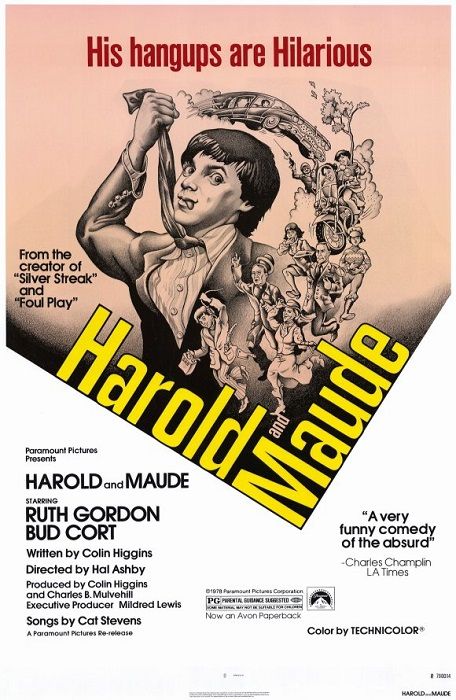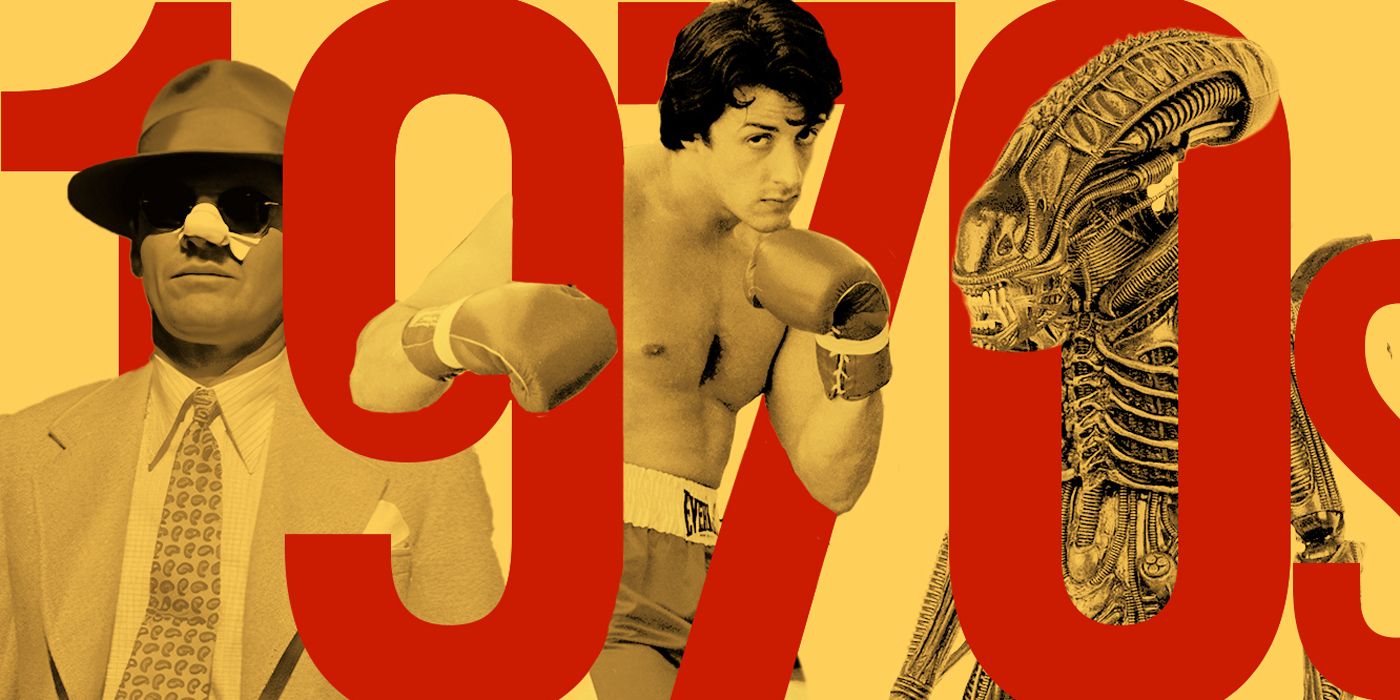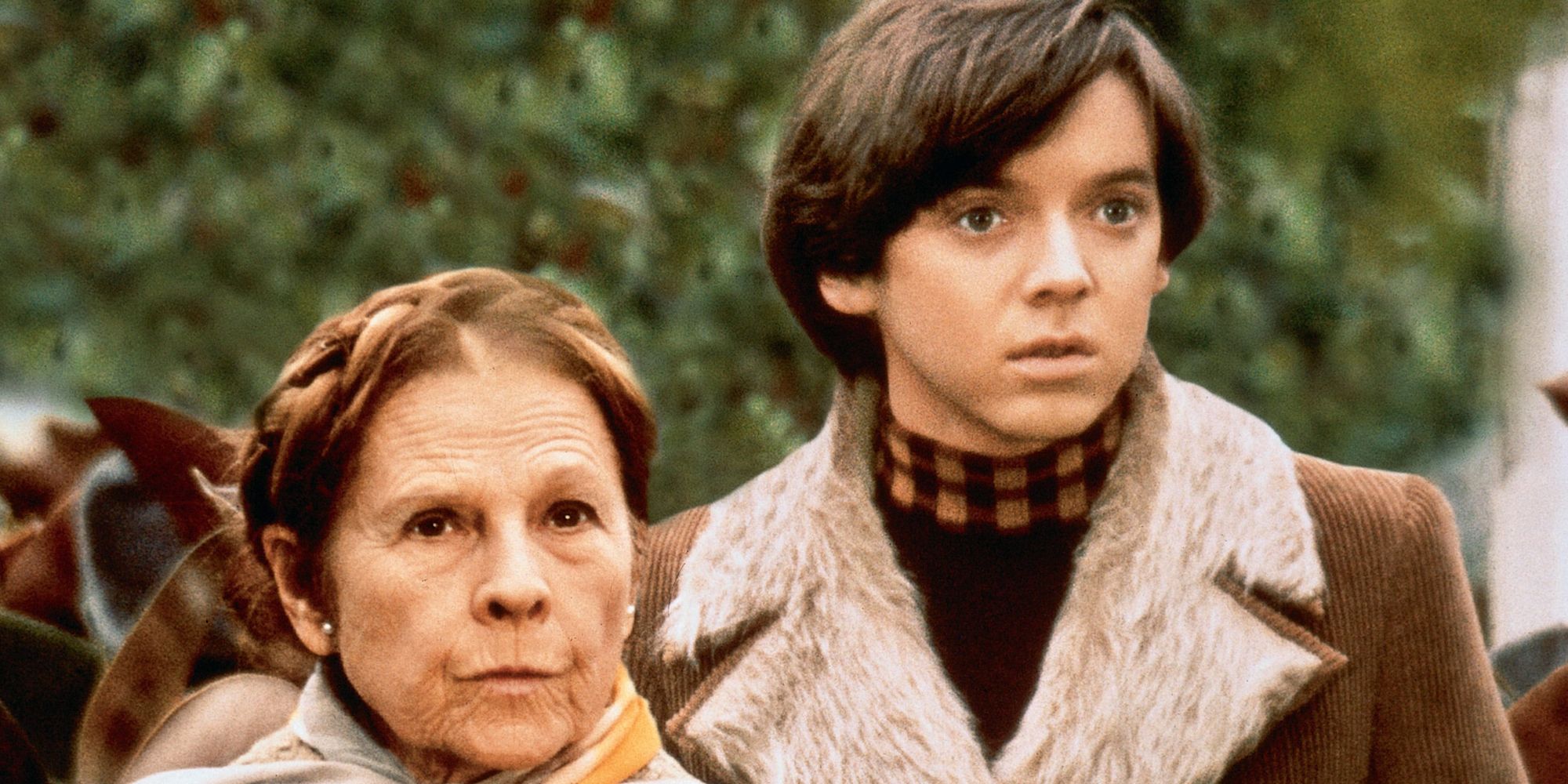The Big Picture
- An unconventional love story between Harold and Maude challenges societal norms, inviting viewers to embrace passion without inhibition.
- Despite initial backlash, the film's timeless appeal resonates with audiences seeking genuine romance portrayed in a rebellious light.
- Late-night college screenings sparked a shift in perception, turning Harold and Maude into a cult classic celebrating love lived dangerously.
Despite its controversial premise, Hal Ashby's counter-culture cult classic Harold and Maude stands as one of cinema's finest romances, and for good reason. It's a delightful, romantic black-comedy drama flick that delves into the idea of getting into a passionate entanglement without any care or worry in the world. It was (and for some, still is) a radical statement about what it truly means to display authentic love, regardless of societal norms and circumstances. While it may be difficult for the general viewing public to appreciate the appeal of a love story between a troubled young man and a Bohemian octogenarian, it manages to inevitably suck them in through its innate sensitivity blended with hilarious gallows humor. Absurd, silly, and downright comforting, the endless love of the 1971 picture continues to charm a plethora of movie lovers — even those who don't necessarily like love stories in the first place.

Harold and Maude
Young, rich, and obsessed with death, Harold finds himself changed forever when he meets lively septuagenarian Maude at a funeral.
- Release Date
- December 20, 1971
- Director
- Hal Ashby
- Cast
- Ruth Gordon , Bud Cort , Vivian Pickles , Cyril Cusack , Charles Tyner , Ellen Geer
- Runtime
- 91 minutes
- Main Genre
- Comedy
- Writers
- Colin Higgins
- Tagline
- They were meant to be. But exactly what they were meant to be is not quite clear.
The Production of 'Harold and Maude'
The roots of Harold and Maude can be traced back to its screenwriter, Colin Higgins, who had written it as his thesis film for his master's degree at the UCLA Film School. He eventually started doing odd jobs for producers Ed and Mildred Lewis. When Higgins would drive their daughter to school, he would tell her about the ideas for his student film. Developing a fondness for his script, she told her mother about it. Mildred was thoroughly impressed with the screenplay the young Higgins developed, telling him that it shouldn't be made into a short film and that it deserved to be presented as a full-length feature. Screenwriter Larry Karazewski in a Variety interview notes that Mildred convinced her husband to call people like Bob Evans and Peter Bart at Paramount Pictures, who ended up buying the script. Despite wanting to direct the movie himself, Higgins lacked experience, at least according to the assessment made by the studio.

The 25 Greatest Movies of the 1970s, Ranked
From 'Jaws' to 'Taxi Driver' to 'Apocalypse Now,' this is Collider's ranking of the best movies of the 1970s.Hal Ashby was eventually called in by the studio to direct the film, but he was initially hesitant. Despite the non-conformist nature of Harold and Maude, which was one of Ashby's trademarks, Nick Dawson mentions in his book, Being Hal Ashby, that the filmmaker wasn't sure if he was the right person to helm the picture. Eventually, he relented and decided to, in his own words, "jump in and see what I could come up with." Ashby also made sure that Higgins would be there as a co-producer since he lost the directorial position. In the spirit of the movie's rebellious theme, Bart and Evans managed to get it funded while the front office had absolutely no idea what it was about. Casting Bud Cort and Ruth Gordon was the icing on the cake, both of whom were simply perfect as the titular characters.
The Unconventional Romance of 'Harold and Maude'
Upon its release in theaters, Harold and Maude was far from what people would call a success. Its disappointing promotional trail was an omen for things to come. It was extremely polarizing and met with scathing reviews from critics, the consensus being that a love story between two people belonging to two widely distant age brackets was too much for the general audience to jump into. Despite the initial backlash, this unconventional pairing is exactly what makes the film a timeless representation of a genuine romance.
Take Harold for instance, a young man so enamored with the idea of death that he stages multiple suicides, and attends funerals for the heck of it, all while driving a hearse. For him, there is nothing worth living in his miserable life, so he decides to go about his existence as morbidly as he can. Having a wealthy socialite for a mom who tries to resolve his issues by setting him up on blind dates and having him psychoanalyzed but to no avail. While it may appear that teenage angst is responsible for his intentions, it isn't necessarily the case. He is perpetually misunderstood and seeks something (or someone) that can give him the zest for life. Ironically, he meets Maude, the person who is teeming with a desire to live, on one of his funeral trips, and it's exactly what the doctor ordered for his wandering soul. Despite her age, Maude is full of vigor, radiating waves of a youthful desire to live as if it were her last moments on Earth. Cort and Gordon's unbridled chemistry glistens along with every farcical and ludicrous activity they come up with, whether it's stealing vehicles, uprooting trees, or even staging a murder to get out of the military.
There's simply something so contagious and enchanting about how this unlikely pair find love in the strangest of places. It's rebellious, defiant in every aspect, and confronts the audience with something they have always imagined love to be. Isn't that the backbone of "true" romance? To completely let go of any inhibition in the name of passion? It imbibes the spectator to revel in its outlandishness, heeding the call of iconoclastic philosopher Friedrich Nietzsche in The Gay Science to "live dangerously." To continue on with this forbidden romance, despite the chagrin of Harold's family, psychoanalyst, and priest, embodies this idea, much like building a city on the slopes of Mt. Vesuvius. Yes, it is dangerous, but what fulfillment can we get without danger? Much of this seeps out of every single moment between Harold and Maude, and perhaps it only needed a different perspective, a different lens, and a different kind of audience to fully appreciate its heartwarming essence.
The Shift in Appreciation for 'Harold and Maude'
Over the years, something changed with how Harold and Maude was perceived, thanks to multiple late-night screenings on college campuses across the United States. The film heavily resonated with the burgeoning generation, characterized by their cynical and sardonic gusto in living life. It even started a legendary run at the Westgate Theater in suburban Minneapolis where it aired for a staggering 112 weeks, starting from March 20, 1972. The reaction was nothing short of nuclear, met with protests about it being "hardcore pornography," a surprisingly loyal following, and hundreds of thousands of dollars in ticket sales.
In 1983, 12 years after its initial release, Harold and Maude finally made a profit, with checks being sent to Hal Ashby, Bud Cort, Collin Higgins, and Ruth Gordon. Gordon couldn't even believe it, and she almost threw her check worth $50,000 away, thinking it was one of those Readers' Digest sweepstakes. It was strange, miraculous even, for it to be successful given how the movie was initially received. Today, it's viewed as the quintessential picture of loving with reckless abandon, an enduring fantasy for those who just want to live life in such a way that they would want to live it again. Perhaps it could all be chalked up to the infectious spirit of its titular characters, Harold and Maude. It challenges people to follow what their heart desires regardless of what others may think, an eternal message that everyone can appreciate. It may still have its critics, but it's frankly immaterial. What's imperative is to stand for its immortal cry still emanating from the screen over 50 years later: "Go love some more."
Harold and Maude is available for rent on Amazon.

